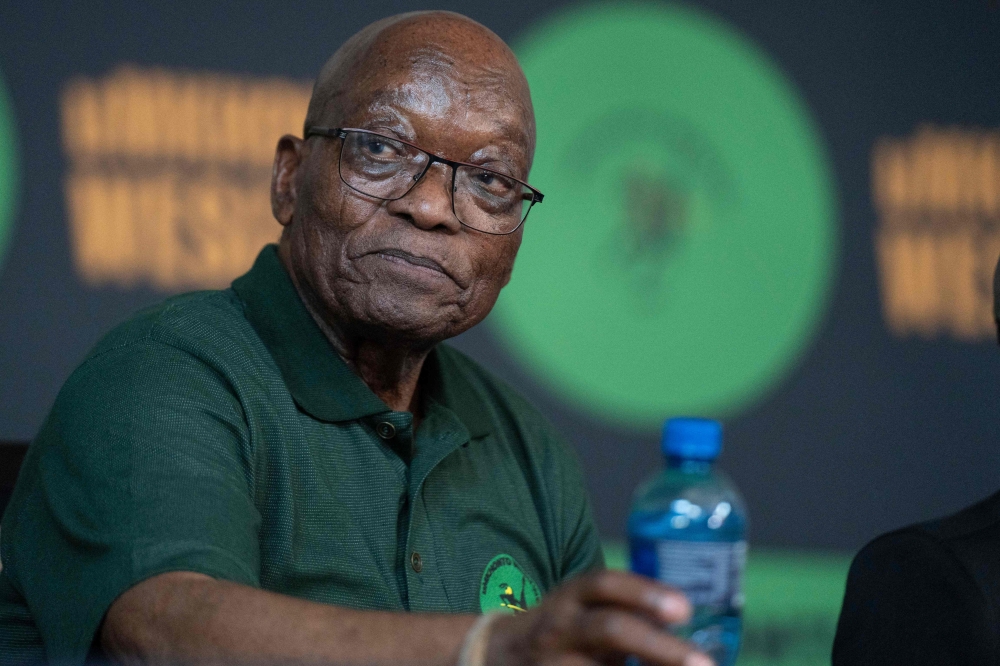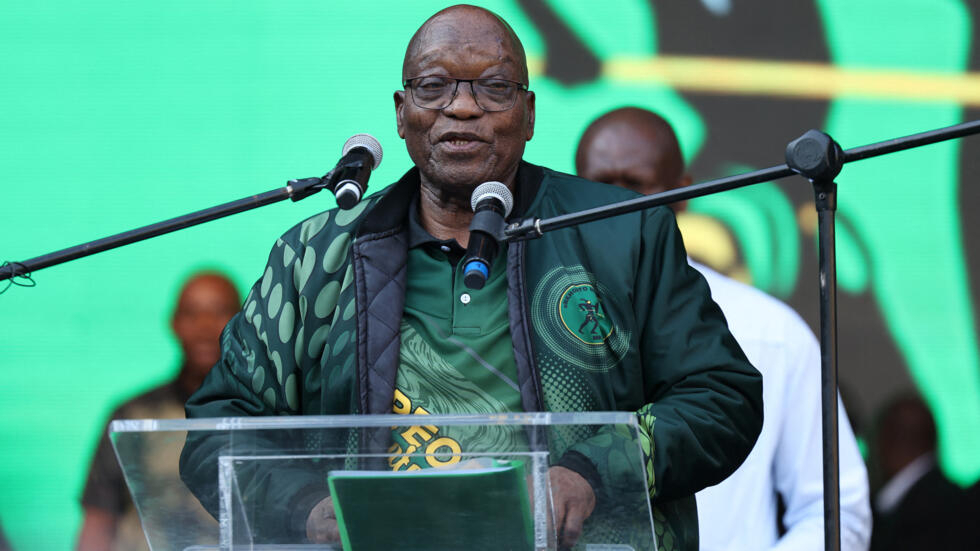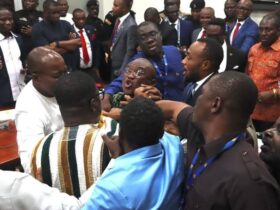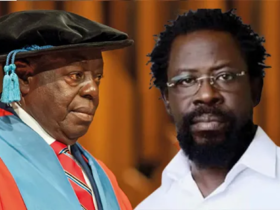In a significant ruling on Monday, South Africa’s highest court declared that Jacob Zuma, the former president tainted by corruption scandals and now an opposition figure, cannot run for parliament in the upcoming general election.

The decision is expected to provoke strong reactions from Zuma’s supporters and raises concerns about potential unrest leading up to the May 29 election.
This election is already anticipated to be the most fiercely contested since the country’s transition to post-apartheid democracy in 1994.
The Supreme Court dismissed Zuma’s challenge against the electoral commission’s determination that his previous conviction for contempt of court disqualifies him from parliamentary candidacy.
The court cited the constitution, which prohibits individuals sentenced to more than 12 months in prison from holding parliamentary office.
Zuma, who departed from office in 2018 amidst persistent corruption allegations, faced a conviction for contempt of court in 2021, resulting in a 15-month sentence.
Despite initially serving less than three months in jail, the court deemed any time served irrelevant to the case.
“This court concludes that Mr Zuma was convicted of an offence and sentenced to more than 12 months imprisonment… and is accordingly not eligible to be a member of and not qualified to stand for election to the national assembly,” Justice Leona Theron said, reading the judgment.
Following a South African general election, the president is selected by Members of Parliament from within their own assembly.
READ ALSO: Government of Trial and Error — Nigerians React Amidst Suspension of Cybersecurity Levy
Therefore, if Zuma is not listed on the ballot, he would be ineligible to assume the presidency, even if his newly established party secures sufficient seats to nominate him.
Supporters congregated in the streets near the courthouse, with some dressed in the military attire commonly associated with members of his uMkhonto we Sizwe (MK) party.
Their resolve is to secure enough seats — constituting two-thirds of the National Assembly — to pursue constitutional amendments.
However, opinion polls indicate that the party’s electoral performance is likely to be limited beyond Zuma’s home province of KwaZulu-Natal.
At a stadium in Soweto, just outside Johannesburg, the former president attracted a significant crowd of 30,000 supporters on Saturday. However, he addressed his core base exclusively in Zulu.
Outside the court, Lindiwe Mtshali, aged 39 and a member of the MK party, expressed disappointment to AFP, stating, “We are very disappointed. There is an agenda, of course, to delay the liberation of black people in this country.”
Wearing a black MK Women’s League T-shirt, Mtshali acknowledged the anticipated decision regarding Zuma’s candidacy but remained optimistic about the prospects of other MK candidates in the upcoming May 29 election. She emphasized that despite this setback, Zuma’s name and image would still appear on pre-printed ballot papers.
“We are resolute,” she affirmed.
Since leaving office, Zuma has been embroiled in multiple legal battles. He established the MK party to challenge his successor Cyril Ramaphosa’s African National Congress (ANC) in the upcoming election, which could potentially mark the first instance since 1994 where the incumbent falls short of an absolute majority.
The ANC has consistently emerged victorious in South African elections since the nation’s transition to democracy in 1994. Zuma’s presidency, from 2009 to 2018, is remembered by many South Africans for its association with widespread corruption.
Neeshan Balton, aged 62, the executive director of the Ahmed Kathrada Foundation, which offered legal advice as amicus curiae in the case, expressed satisfaction with the ruling outside the court. He stated, “It reaffirms that candidates must pledge to uphold the constitution. The former president clearly failed to do so, and we are pleased that he’s been disqualified.”
Zuma’s outsider campaign may erode the ANC’s traditional support base, potentially necessitating Ramaphosa to negotiate a coalition with one or more small opposition parties for his re-election to the presidency.
The decision to remove Zuma from the ballot could potentially incite deadly unrest, reminiscent of the riots following his imprisonment in 2021, which claimed over 350 lives.
Although ballot papers have already been printed featuring Zuma’s image, he would be ineligible to serve as a Member of Parliament.
Despite the ANC’s historical significance in the struggle against apartheid, the party has faced declining support in recent polls due to corruption allegations and escalating crime and unemployment rates. Nearly one-third of the working-age population is unemployed, and the daily murder rate has soared to 84.
Nevertheless, the ANC retains a formidable nationwide electoral machinery and has established an extensive social welfare system, factors that continue to garner loyalty from many older South Africans.
APF
Follow the Parallel Facts channel on WhatsApp: https://whatsapp.com/channel/0029VaCQSAoHgZWiDjR3Kn2E









Leave a Reply